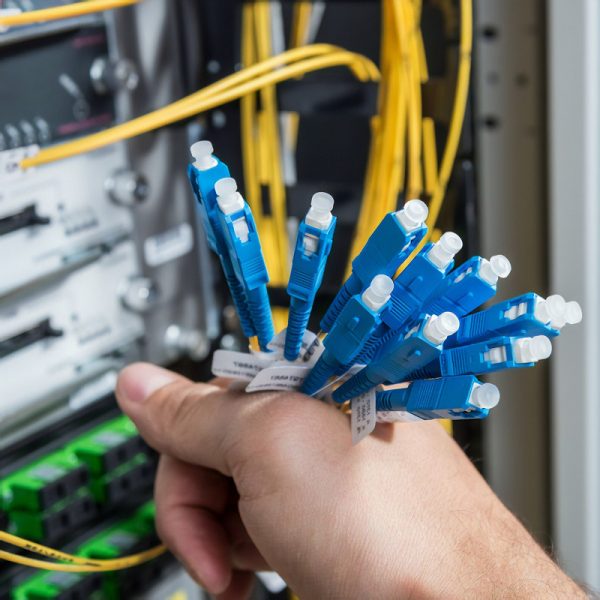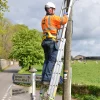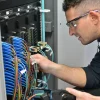PWC Model COVID-19 Impact on UK Telecoms, Warn of 5G Delay

A new report from professional services firm PwC has examined the likely impact of the current COVID-19 (Coronavirus) crisis on fixed broadband and 5G mobile services and deployments in the United Kingdom, which predicts a turbulent time for telecoms with costly delays to new infrastructure but also some opportunities.
The report itself appears to reflect more of a brief overview of the current crisis, with a few general conclusions, rather than a comprehensive study (at least that’s all we could gleam from its 13 pages). All of this is then set against the background of a 10% year-on-year fall in GDP if the UK experiences a “shortened peak in COVID-19 cases and lockdown” (this is by no means a certainty and the crisis may be worse).
PwC’s modelling suggests a “likely double-digit fall in GDP in the second quarter of 2020“. In the “Smooth exit” and “Bumpy exit” scenarios, overall UK GDP could contract between 12% to 16% quarter on quarter in Q2 2020 respectively. By comparison, the previous global financial crisis led to a contraction of around just 2.1%.
Advertisement
On top of that it claims that the UK telecoms sector employs some 226,000 people and now carries a “Medium” risk to jobs due to COVID-19 (i.e. the potential for job losses), mostly as a result of operators’ seeing lower cash flow. It also notes that 41% of workers within the sector will normally come into physically close contact with >20 fellow workers, although 85% of workers were in positions where they could work from home (this seems a bit high to us given the vast number of engineers needed at present).

The report goes on to state that “many operators are reporting minimal new customer acquisitions,” (no examples are given) although on the flip side it states that “churn has dropped dramatically” but this is expected to change as the lockdown is eased and more consumers go looking for other plans.
However, some anecdotal evidence from other price comparison sites has recently indicated a surge in consumer switching, but we’ve yet to see that being supported by other data sources. One problem here is that some major operators, such as Openreach (BT), have stopped or delayed new home installs if they require an engineer visit (with some exceptions) but others have not. The real picture is quite varied.
Advertisement
The roll-out of 5G “ultra-fast” mobile broadband connectivity is also “likely to be delayed as a result of the pandemic” and this could be a “significant delay,” said PwC. Any delays could prove to be very costly for operators, which is something we’ve already seen highlighted by another recent report (here). Operators may end up needing, it says, to consider reallocating some of the money earmarked for 5G to other areas in the interim.
Extract from PwC’s Report
The need for 5G might seem more urgent than ever, not just for the faster speed of communication but because of the promise of low latency connectivity and ability to enable large numbers of objects to communicate simultaneously. Though neither are available yet, these capabilities can enhance productivity in industry, healthcare and transportation, and may aid the recovery from the pandemic and any subsequent financial downturn. But a significant delay appears inevitable.
Network operators are facing up to other operational obstacles. The focus of most transformation programs has been shifted to business continuity activities. Meanwhile, network field operations have been restricted to essential repairs only – the limitations of social distancing coupled with self-isolation and the risk of infection are putting enormous pressure on engineering workforces.
So what about the solutions to all this? PwC notes that the crisis and enforced working from home (WFH) has “dramatically tipped the balance away from corporate networks to those serving the domestic market,” some of which seems likely to remain after things start to improve.
The report suggests that operators should pre-empt slowing sales by offering retail customers “free or discounted upgrades to higher speed” plans, and by tailoring products to those working from home (e.g. home broadband packages that feature cybersecurity, personal cloud, office collaboration tools and content packages). We think that’s a good idea. Some ISPs already get close to this with their small business packages but they could go further.
Secondly, PwC says that network capacity will need to reflect the increased proportion of residential consumers using data services for work and entertainment, which is already happened but the report has a wider meaning. “This will bring greater intensity to residential infrastructure. As traffic to and from corporate office locations decline, so might revenues from corporate networks. Operators must prepare for both eventualities.”
Advertisement
The full report contains some other ideas, although those are perhaps of more interest to ISPs and aren’t particularly well fleshed out. Otherwise PwC’s report concludes with the following message.
PwC Conclusion
As the industry continues to provide critical infrastructure in the immediate term, it needs to look forward and understand how to meet the changing needs of consumers, businesses and wider society post-COVID-19. In healthcare and the management of cities and areas where people gather in high numbers, such as entertainment venues, communications technology has huge potential to benefit society, as discussed above. This pandemic is a pivotal moment for the telecoms industry, and is likely to increase public awareness and policymakers’ acceptance of the ways in which communications technology can not only keep us entertained, informed and in touch, but help us stay safe. There has never been a better moment for telecoms operators to boldly pursue these widespread and significant opportunities.
Mark is a professional technology writer, IT consultant and computer engineer from Dorset (England), he also founded ISPreview in 1999 and enjoys analysing the latest telecoms and broadband developments. Find me on X (Twitter), Mastodon, Facebook, BlueSky, Threads.net and Linkedin.
« COVID-19 – Ofcom Delays UK Telecoms Work for 2020 to 2021























































Comments are closed